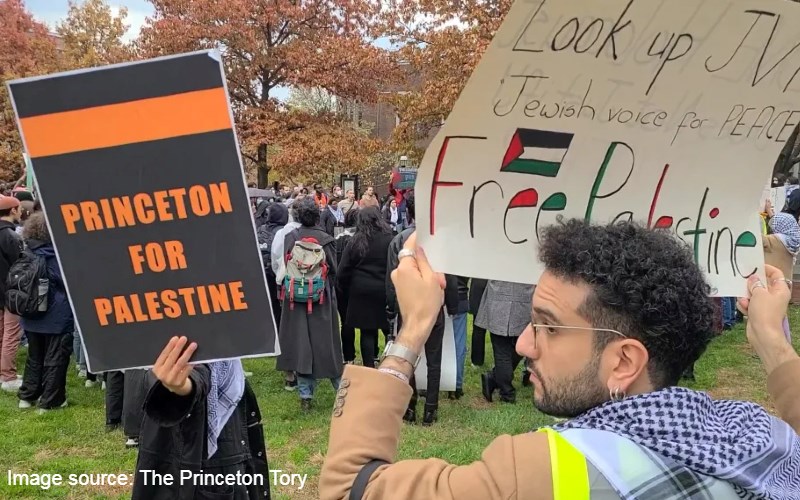On behalf of reporter Danielle Shapiro, a joint letter was sent to Princeton from the Anti-Defamation League and from free speech group Foundation for Individual Rights and Expression, or FIRE. That fiery letter did not go ignored since the university has now changed a policy that unfairly punished Shapiro late last year.
Shapiro, who writes for right-leaning student newspaper The Princeton Tory, attended a Nov. 9 protest sponsored by Students for Justice in Palestine. A detailed story by the Tory describes the event, such as the crowd size and disturbing chants that called for violence against Jews. It also describes how protesters physically blocked Tory’s staff from filming the public event. Those incidents can be seen in a YouTube video and a video posted on Twitter by Tory publisher Alexandra Orbuch.
Alex Morey, an attorney for FIRE, says Shapiro was physically blocked and pushed by a student protester, a graduate student, who didn’t want her filming. Despite his own behavior, the graduate student later filed a non-contact order against Shapiro, which the university granted against the student reporter.

"It was like this weird loophole,” Morey explains, “where if you didn't like a student journalist's coverage, or you just didn't like a student, you could ask for and get a no-contact or no-communication order from Princeton."
Morey, who has a background in journalism, says the no-contact order effectively stops the journalist from attending another pro-Palestinian protest if the graduate student attends it.
Princeton, a sought-after Ivy League school, currently has a “red” rating with FIRE which is equivalent to a failing grade due to its campus speech codes and policies.
In the letter to Princeton, the Anti-Defamation League and FIRE said the no-contact policy was “issued by administrators with disciplinary authority, under threat of punishment, without a modicum of due process, and—most unconscionably—where the student-speaker is not even alleged to have violated any university policy.”
According to Morey, the new updated policy allows for a 24-hour no-contact order until the university can investigate the allegations and learn the facts.







